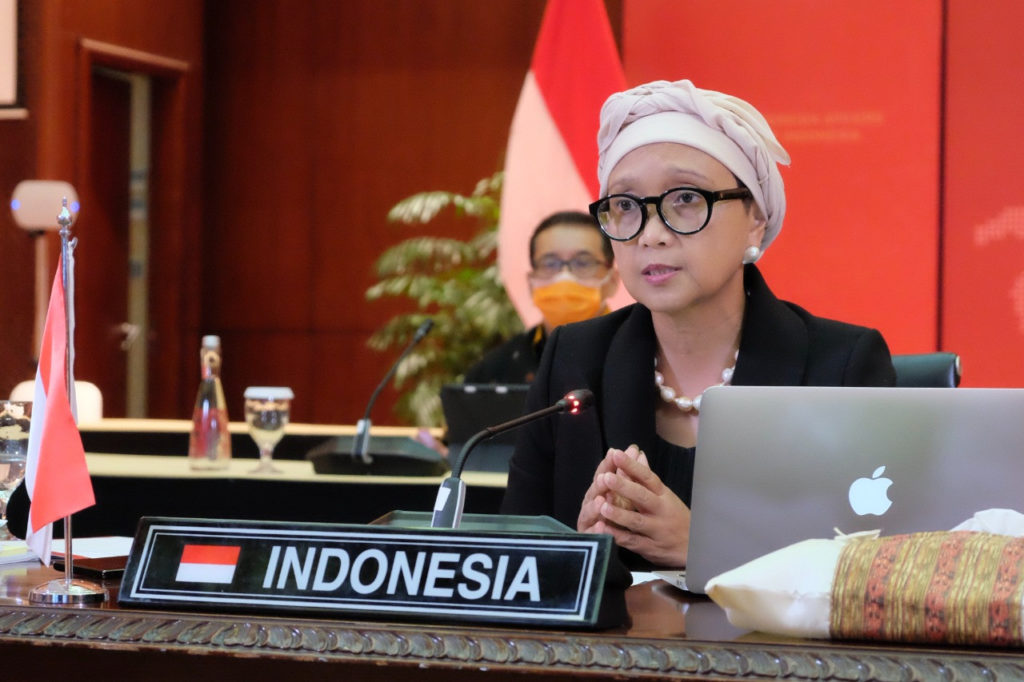IN THE MEDIA
Indonesia, the Palestinians and the new Middle East
October 5, 2020 | Colin Rubenstein

Jakarta Post, October 5, 2020
In the aftermath of the Sept. 15 Washington signing of separate peace and normalization agreements between Israel and the United Arab Emirates (UAE) and Israel and Bahrain, the Abraham Accords, we may be witnessing the emergence of a “new Middle East”.
In the aftermath of the Oslo Accords, the late Israeli statesman Shimon Peres foresaw a regional peace fueled by cooperative economic restructuring and “a long-term process of reciprocal disarmament” made possible by the resolution of what Peres saw as the core issue between Israel and the Arab world: The Israeli-Palestinian conflict.
While not modelled on the vision Peres sketched in his 1993 book The New Middle East, the Abraham Accords clearly refute widely-held assumptions about the centrality of resolving the Palestinian issue as a prerequisite for establishing a foundation of peace, prosperity and stability in the Middle East.
Before anyone ever spoke of an Israeli-Palestinian conflict, there existed an Arab-Israel conflict. And while the Palestinian issue remains far from being resolved, there is today good reason to believe that this older “Arab-Israel conflict” may be coming to an end.
The cornerstone of this transformative change is the acceptance of Israel’s legitimacy as an integral part of the region. It’s significant that the Abraham Accords recognize Jews, and by extension their state, Israel, as a member of the family of Abrahamic peoples native to the Middle East.
Meanwhile, mutually beneficial regional economic cooperation also may soon become a reality. There is abundant evidence that not only the UAE and Bahrain, but other Persian Gulf states, are interested in pursuing just such a vision. Wars in Iraq and Afghanistan, civil wars in Syria and Yemen, the rise of al-Qaeda and Islamic State and Iranian aggression and its nuclear weapons ambitions have made a mockery of the notion that settling the Palestinian issue was the key to peace in the region.
The Abraham Accords represent a paradigm shift for the Arab world as a whole. They could not have advanced without tacit Saudi approval, and the Arab League effectively endorsed them by rejecting Palestinian demands to condemn them. These latest developments also have the potential to bring the Palestinians back to the negotiating table as the Accords remind Palestinian leaders that the world waits for no one.
Palestinian leaders have the agency to take the brave steps necessary to negotiate an end to the conflict, and the establishment of a Palestinian state existing alongside Israel in peace and prosperity, a possibility offered to the Palestinians at least three times since 2000.
The Palestinians can now count on Israel’s new Arab partners to keep advocating for the Palestinians’ legitimate interests, with Israeli leaders having an incentive to hear them out.
These states can also offer, to both sides, support for, and participation in, creative arrangements to help ameliorate the security risks involved in any two-state arrangement. Indonesia, for its part, has recognized the value of states having diplomatic relations with Israel as a means to help facilitate peace between Israel and the Palestinians.
In an address to the Organization of Islamic Cooperation (OIC) in June, Indonesian Foreign Minister Retno LP Marsudi urged OIC states which maintain formal relations with Israel to take diplomatic measures in accordance with OIC resolutions, if Israel proceeded with its plan to extend sovereignty to parts of the disputed territory. In other words, she called on them to use their relations with Israel to facilitate peace.
Indonesia could now take advantage of the OIC’s internal division over normalization with Israel and reassess, like so many others, its own policies on the matter. In August, when OIC member state UAE announced a normalization deal with Israel that would require the suspension of Israel’s controversial sovereignty plans, the OIC did not condemn the move.
A nonbinding statement on Aug. 24 from OIC secretary-general Yousef A al-Othaimeen that “normalizing the relations between member states and the Israeli occupation state will never take place until after the end of the Israeli occupation”, was closer to wishful thinking than a statement of policy. In spite of this statement, fellow member state Bahrain followed the UAE’s lead on Sept. 11, and the OIC has censured neither country.
Increasingly, Palestinian activists are accepting the new reality reflected by the Abraham Accords. Prof. Sari Nusseibeh, the Palestine Liberation Organization’s former representative in Jerusalem, endorsed a new approach of engagement with Israel in remarks to The Jerusalem Post.
“In the past, we had an Arab consensus, which was no peace with Israel until there is peace with the Palestinians,” he said. “If you look at the history of this policy, one can’t but say it has failed. Why be blind to the fact?”
The Abraham Accords ultimately came about because the Middle East has changed.
Indonesia, like fellow OIC member states the UAE and Bahrain, will hopefully also find creative ways to engage with not only the ongoing challenges but also the opportunities in the emerging – and very promising – “new Middle East”. Among those opportunities will be new ways to advance hopes of Palestinian self-determination as part of a new relationship with Israel.
Colin Rubenstein is Executive Director of the Australia/Israel & Jewish Affairs Council
Tags: Indonesia, Israel, Middle East, UAE





